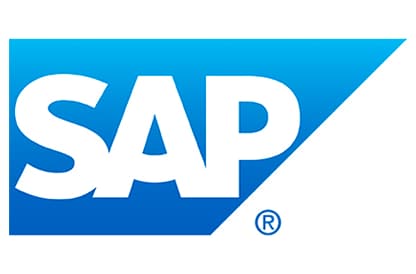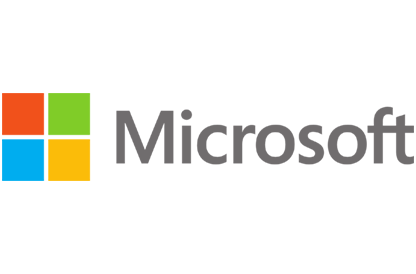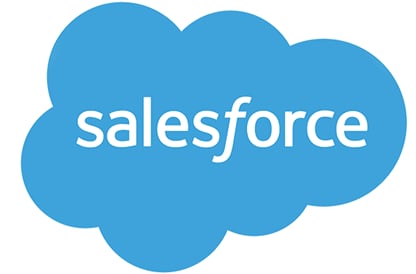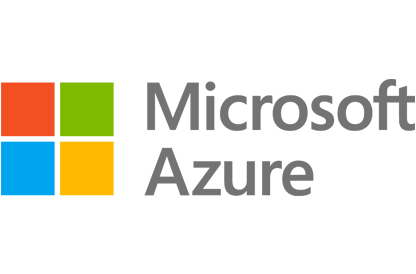Why OpenText
Why OpenText
Overview Why OpenText
OpenText brings decades of expertise to help you unlock data, connect people and processes, and fuel AI with trust
Manage and connect data
Unify data seamlessly across your enterprise to eliminate silos, improve collaboration, and reduce risks
AI-ready information
Get AI-ready and transform your data into structured, accessible, optimized information
Built-in security and compliance
Meet regulatory and compliance requirements and protect your information throughout its lifecycle
Empowering people
Overview Empowering people
OpenText helps people manage content, automate work, use AI, and collaborate to boost productivity
Customers
See how thousands of companies around the world are succeeding with innovative solutions from OpenText
Employees
Our people are our greatest asset; they are the life of the OpenText brand and values
Corporate Responsibility
Learn how we aspire to advance societal goals and accelerate positive change
Partners
Find a highly skilled OpenText partner with the right solution to enable digital transformation
How we compare
Content Management
Service Management
Deploy anywhere
Overview Deployment options
Explore scalable and flexible deployment options for global organizations of any size
Sovereign cloud
Local control. Global scale. Trusted AI
Private cloud
Unlock the value of the cloud while maintaining control and compliance
On-premises
Maintain full control of your data on your own infrastructure
Public cloud
Protect, scale, and use business information in your cloud of choice
AI leadership
Overview Aviator AI
See information in new ways
OpenText™ Aviator™ AI
AI that understands your business, your data, and your goals
OpenText™ MyAviator
Say hello to faster decisions. Your secure personal AI assistant is ready to get to work
OpenText™ Business Network Aviator™
Gain better insights with generative AI for supply chains
OpenText™ Content Aviator™
Power work with AI content management and an intelligent AI content assistant
OpenText™ Cybersecurity Aviator™
Improve your security posture with AI cybersecurity and agile threat detection
OpenText™ DevOps Aviator™
Enable faster app delivery, development, and automated software testing
OpenText™ Experience Aviator™
Elevate customer communications and experiences for customer success
OpenText™ Fax Aviator™
Turn every fax into instant action with AI
OpenText™ Service Management Aviator™
Empower users, service agents, and IT staff to find the answers they need
Aviator AI
Overview Aviator AI
See information in new ways
OpenText™ Aviator™ AI
AI that understands your business, your data, and your goals
OpenText™ MyAviator
Say hello to faster decisions. Your secure personal AI assistant is ready to get to work
OpenText™ Business Network Aviator™
Gain better insights with generative AI for supply chains
OpenText™ Content Aviator™
Power work with AI content management and an intelligent AI content assistant
OpenText™ Cybersecurity Aviator™
Improve your security posture with AI cybersecurity and agile threat detection
OpenText™ DevOps Aviator™
Enable faster app delivery, development, and automated software testing
OpenText™ Experience Aviator™
Elevate customer communications and experiences for customer success
OpenText™ Fax Aviator™
Turn every fax into instant action with AI
OpenText™ Service Management Aviator™
Empower users, service agents, and IT staff to find the answers they need
Analytics
Overview Analytics
Predict, act, and win with real-time analytics on a smarter data platform
Business Network
Overview Business Network
Connect once, reach anything with a secure B2B integration platform
Content
Overview Content
Reimagine knowledge with AI-ready content management solutions
OpenText™ Content Aviator™(AI)
Supercharge intelligent workspaces with AI to modernize work
Cybersecurity
Overview Cybersecurity
Integrated cybersecurity solutions for enterprise protection
OpenText Cybersecurity for SMBs & MSPs
Purpose built data protection and security solutions
OpenText™ Cybersecurity Aviator™(AI)
Reinvent threat hunting to improve security posture with the power of agile AI
DevOps
Overview DevOps
Ship better software—faster—with AI-driven DevOps automation, testing, and quality
Experience and Fax
Overview Experience and Fax
Reimagine conversations with unforgettable customer experiences
OpenText™ Experience Aviator™(AI)
Transform customer communications with private generative AI
OpenText™ Fax Aviator™(AI)
Turn faxes into workflow-ready data with AI
Legal Tech
Overview Legal Tech
Make smarter decisions with AI-powered legal software and services
OpenText™ eDiscovery
Accelerate eDiscovery with AI-driven speed and precision
OpenText™ Investigation
Optimize strategy with early case assessment and investigation tools
OpenText™ Core Insight
Get smarter eDiscovery with advanced TAR and automated document review
OpenText™ Core Legal Hold
Automate legal holds to eliminate risky and time-consuming processes
OpenText™ Legal Knowledge Management
Unlock knowledge and legal insights across content silos
Observability and Service Management
Overview Observability and Service Management
Get the clarity needed to cut the cost and complexity of IT operations
OpenText™ Service Management Aviator™(AI)
Redefine Tier 1 business support functions with self-service capabilities from private generative AI
APIs
Overview APIs
Build custom applications using proven OpenText Information Management technology
OpenText™ API Services
Build it your way with OpenText Cloud APIs that create the real-time information flows that enable custom applications and workflows
Device and Data Protection
Overview Device and Data Protection
Protect what matters, recover when it counts
Unified Endpoint Management Tools
- OpenText™ Endpoint Management
- OpenText™ ZENworks Suite
- OpenText™ ZENworks Service Desk
- OpenText™ ZENworks Configuration Management
- OpenText™ ZENworks Endpoint Security Management
- OpenText™ ZENworks Full Disk Encryption
- OpenText™ ZENworks Endpoint Software Patch Management
- OpenText™ ZENworks Asset Management
Solutions
Trusted Data & AI
Overview Trusted Data & AI
Secure information management meets trusted AI
OpenText AI Data Platform
A unified data framework to elevate data and AI trust
OpenText™ Aviator™ Studio
A place where you can build, deploy, and iterate on agents in your data's language
OpenText Discovery
A set of tools to help ingest data and automate metadata tagging to fuel AI
OpenText Data Compliance
A suite of services and APIs that make governance proactive and persistent
OpenText Aviator AI Services
Professional services experts who help you on your AI journey
Information Reimagined
Overview Information Reimagined
Get greater visibility and sharper insights from AI-driven information management. Ready to see how?
Knowledge reimagined
Transform daily work with enterprise content management powered by AI
Service Management reimagined
Cut the cost and complexity of IT service management, AIOps, and observability
Connections reimagined
AI-powered B2B integration for supply chain success
Conversations reimagined
Drive value, growth, and loyalty with connected customer experiences
Engineering reimagined
Agile development and software delivery? It only seems impossible
Security reimagined
Cybersecurity for the Enterprise
Decisions reimagined
Unlock insights with AI data analytics
Artificial Intelligence
Overview Aviator AI
See information in new ways
OpenText™ Aviator™ AI
AI that understands your business, your data, and your goals
OpenText™ MyAviator
Say hello to faster decisions. Your secure personal AI assistant is ready to get to work
OpenText™ Business Network Aviator™
Gain better insights with generative AI for supply chains
OpenText™ Content Aviator™
Power work with AI content management and an intelligent AI content assistant
OpenText™ Cybersecurity Aviator™
Improve your security posture with AI cybersecurity and agile threat detection
OpenText™ DevOps Aviator™
Enable faster app delivery, development, and automated software testing
OpenText™ Experience Aviator™
Elevate customer communications and experiences for customer success
OpenText™ Fax Aviator™
Turn every fax into instant action with AI
OpenText™ Service Management Aviator™
Empower users, service agents, and IT staff to find the answers they need
Industry
Overview Industry solutions
Improve efficiency, security, and customer satisfaction with OpenText
Energy and resources
Transform energy and resources operations with cloud, cybersecurity, and AI
Financial services
Boost customer experience, compliance, and efficiency with AI
Government
Reimagine your mission with government-secure information management
Healthcare and life sciences
Improve care delivery and patient engagement with AI-powered solutions
Legal
Modernize legal teams with automated, AI-powered legal tech solutions
Manufacturing
Modernize manufacturing operations and logistics to reduce costs and ensure compliance
Retail and consumer goods
Enhance consumer engagement with omnichannel retail solutions and AI
Enterprise Application
Overview Solutions for Enterprise Applications
Run processes faster and with less risk
Services
Services
Overview Services
Achieve digital transformation with guidance from certified experts
Professional Services
Modernize your information management with certified experts
Customer Success Services
Meet business goals with expert guidance, managed services, and more
Support Services
Turn support into your strategic advantage
Managed Services
Free up your internal teams with expert IT service management
Learning Services
Discover training options to help users of all skill levels effectively adopt and use OpenText products
Professional Services
Overview Professional Services
Modernize your information management with certified experts
Customer Success Services
Overview Customer Success Services
Meet business goals with expert guidance, managed services, and more
Support Services
Overview Support Services
Turn support into your strategic advantage
Managed Services
Overview Managed Services
Free up your internal teams with expert IT service management
Learning Services
Overview Learning Services
Discover training options to help users of all skill levels effectively adopt and use OpenText products
Partners
Find a Partner
Overview Find a partner
Find a highly skilled OpenText partner with the right solution to enable digital transformation
Cloud Partners
Overview Cloud Partners
OpenText partners with leading cloud infrastructure providers to offer the flexibility to run OpenText solutions anywhere
Enterprise Application Partners
Overview Enterprise Application Partners
OpenText partners with top enterprise app providers to unlock unstructured content for better business insights
Partner Solutions
Overview Partner Solutions
Discover flexible and innovative offerings designed to add value to OpenText solutions
Resources for Partners
Overview Resources for Partners
Discover the resources available to support and grow Partner capabilities
Support
Overview Customer Support
Get expert product and service support to accelerate issue resolution and keep business flows running efficiently
Resources
Overview Resources
Explore detailed services and consulting presentations, briefs, documentation and other resources
Choose your region:
Europe, Middle East and Africa
Asia–Pacific
 Migros Bank
Migros Bank
Migros Bank automates software testing for banking experts with UFT One

Products and services
Outcomes
- No scripting enables easy creation of test cases by banking experts
- High visibility of software development quality as a result of integration of key testing solutions
- Automated testing eases the burden on testers
Challenge
Migros Bank AG is a reliable, no-nonsense, expert Swiss universal bank and full subsidiary of the Migros-Genossenschafts-Bund. As a cooperative bank, it considers itself the friendly alternative, offering attractive banking products and terms.
“For us as a bank, it is extremely important that our core banking applications run smoothly at all times without any errors or disruptions. We can’t tolerate a single error on account of the impact this would have on customer confidence,” explains Rebecca Schadegg, Testing Team manager at Migros Bank AG.
The standardized … test environment has genuinely helped us to achieve quality improvements. One major advantage for our banking experts has been the automation of tests.
Two years ago, prompted by a need to improve the quality of its software and exert a direct influence on testing processes, the management at Migros Bank made the decision to insource its software testing, which had previously been outsourced to an external service provider.
To this end, Schadegg set up an internal team which today has twelve members. The team is responsible for the regression testing of Finnova Banking Software, the core banking application used by Migros Bank, as well as key peripheral systems and interfaces. The bank receives updates and new functions for the Finnova software once a month, which its departments then analyze for relevance.
If the decision is taken to implement the modifications and updates, the testing team includes these in the regression tests to identify defects and possible side effects. The desired updates, sometimes up to 2,000 changes in total, are then implemented in a major release every three months—after they have been tested thoroughly.
It was important to us for our testers to be able to create automated tests without an in-depth understanding of IT. Ultimately, after comparing the various tools available, this was the main reason we opted for an end-to-end…environment.
In the run-up to the resumption of testing activities in-house, it was clear to Schadegg that the business needed a solution that would document all test cases, both manual and automated.
Details
Solution
The testers in Schadegg’s team are not IT professionals, but banking experts with a thorough understanding of business processes at Migros Bank and are therefore able to create realistic test cases.
“It was therefore important to us for our testers to be able to create automated tests without an in-depth understanding of IT,” comments Schadegg.
“Ultimately, after comparing the various tools available, this was the main reason we opted for an end-to-end…environment,” recalls Schadegg.
End-to-end support means that even requirements management is completed in OpenText™ Application Lifecycle Management (ALM) at Migros Bank. This is also where all the test cases are documented, irrespective of whether these have been run manually or automatically. Functional tests are created on a component basis using OpenText™ Business Process Testing and, if required, are automated using OpenText™ UFT One.
“Whilst achieving a high a level of automation is not our key aim, in the case of regression tests, we always check whether automated testing will be useful—in order to increase both testing efficiency and quality. The reason behind this is that if you always test the same thing manually, it is easy to become ‘test blind’ and overlook errors,” stresses Schadegg. “This can’t happen to a test robot such as UFT One, which is why we are fully behind test automation.”
Professional Services supported Migros Bank with the implementation of the solution and its migration to in-house processes. “I am delighted to report that, thanks to the professional assistance of Professional Services, the test team were able to hit the ground running,” comments Schadegg.
This assistance included training the testers and creating a decision matrix, which Migros Bank uses today to determine whether or not to implement automated regression tests. Nine months in, Migros Bank has already automated approximately 70 test cases for business processes, such as incoming payments or stock market purchases. A figure that is set to rise to 120 over the next three months. “And that’s not the end of it,” continues Schadegg. “Eventually, we estimate that the bank will be able to automate up to 20 percent of all test cases with UFT One.”
Results
Schadegg is convinced. “The standardized test environment has contributed to real improvements in software quality. While it is too soon yet for reliable figures, the first three major releases that have gone live since we implemented the solution were of a very high quality. We have not experienced any serious software failures in that time. However, identifying quality problems, their potential impact on business, and rectifying these, should a failure arise, is much faster for us thanks to ALM.
“At the end of the day, we now have much greater transparency over testing than we did before and are able to work more efficiently because all the information is available. The real advantage for us is that the test automation is being done by banking experts and not IT experts.”
About Migros Bank

Migros Bank was founded by Gottlieb Duttweiler in 1958. Today, with more than 800,000 customer relationships and 67 branches, Migros Bank is one of the leading banks in Switzerland.





